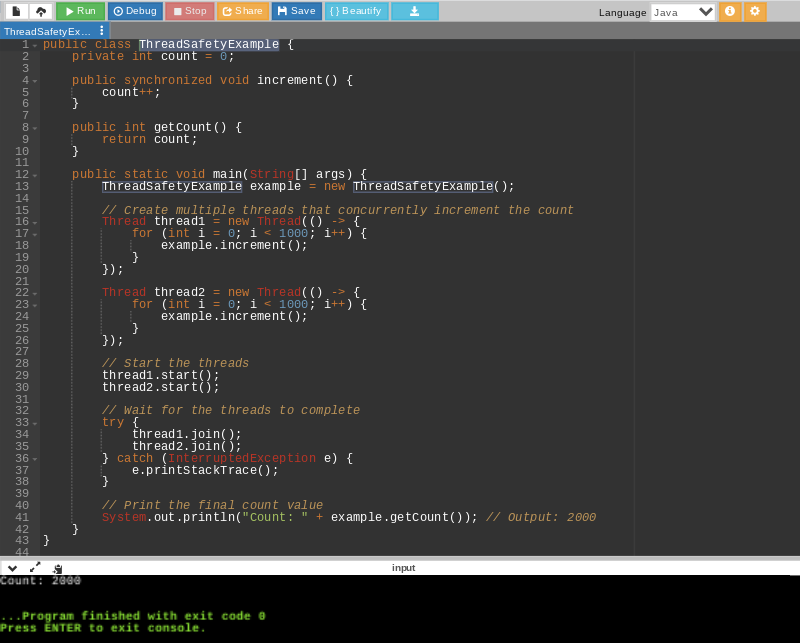What Is Unalterable Strings and How It Works
In the realm of programming, recognizing the idea of immutable strings is extremely important for developing robust and safe and secure applications. Immutable strings refer to strings that can not be modified after they are developed, making sure data stability and predictability within the code. This essential concept plays an essential function in numerous shows languages and offers a special method to taking care of information. By exploring the intricacies of exactly how immutable strings function, one can uncover a globe of benefits and opportunities that can boost the high quality and effectiveness of software program development.
The Basics of Immutable Strings
Immutable strings, as a fundamental concept in programming, are character sequences that can not be changed as soon as they are created. This implies that as soon as a string is appointed a value, that value can not be modified. In languages like Python and Java, strings are unalterable things, leading to numerous ramifications in terms of memory administration and data honesty.
Among the key advantages of immutable strings is that they supply a sense of safety and security in information adjustment. Since the content of an immutable string can not be customized, it ensures that the initial information continues to be undamaged, decreasing the threat of unintentional adjustments throughout program execution (Why are strings immutable in Java?). This property also streamlines debugging processes, as developers can trust that as soon as a string is defined, its value will not be accidentally altered
When a new string is created based on an existing one, instead than changing the original string, the new value is saved separately. In general, comprehending the essentials of unalterable strings is vital for understanding programs ideas and enhancing code effectiveness.
Advantages of Immutable Strings
Building upon the safety and security and efficiency advantages of immutable strings, their advantages prolong to improving code dependability and streamlining concurrent shows jobs. By being unalterable, strings can not be customized after creation, which removes the danger of unexpected modifications in the data they store. This inherent immutability guarantees that when a string is produced, its value remains constant throughout the program's implementation, minimizing the chances of pests brought on by unforeseen modifications.
Additionally, unalterable strings contribute to code integrity by making it easier to reason concerning the state of a program. Considering that strings can not be changed, programmers can trust that a string will always hold the same worth, simplifying debugging and upkeep efforts. This predictability brings about much more trustworthy and stable codebases.
Execution in Programs Languages
Within numerous programs languages, the unification of immutable strings is an essential facet that affects just how information is taken care of and manipulated within code structures. The implementation of immutable strings varies across various shows languages, with each language supplying its own mechanisms to sustain this principle.

In comparison, best site languages like C and C++ do not have integrated support for unalterable strings. Developers in these languages should by hand carry out immutability by applying rules within their code to stop direct adjustments to string things.
Finest Practices for Dealing With Unalterable Strings
When handling unalterable strings in programs languages like Java and Python, adhering to ideal methods ensures secure and efficient data adjustment. Among the vital ideal methods is to make use of StringBuilder or StringBuffer as opposed to directly adjusting strings, specifically when handling extensive concatenation operations. These classes provide mutable choices for string control, aiding to prevent unneeded memory allotments and enhancing performance.
Additionally, when working with sensitive information such as passwords or API tricks, it is important to prevent keeping them as plain text in immutable strings. Utilizing safe and secure storage space devices like char selections or specialized collections for handling sensitive details assists reduce safety threats linked with unalterable strings.
Real-world Applications and Examples
Checking out functional applications of immutable strings in different sectors discloses their considerable influence on blog data stability and system dependability. In the healthcare sector, unalterable strings play an essential function in guaranteeing the safety and security and confidentiality of person information. By stopping unauthorized modifications to sensitive info such as medical documents and prescriptions, immutable strings help preserve conformity with strict privacy regulations like HIPAA.
Monetary institutions also profit from the immutable nature of strings to boost the protection of client information and transaction records. Immutable strings help stop scams and unauthorized alterations to economic info, giving a durable defense against cyber hazards and making sure the trust fund and confidence of clients.

Verdict
Finest techniques for functioning with immutable strings include avoiding straight modifications and utilizing approaches that return brand-new string why not try these out objects. Real-world applications of unalterable strings consist of information encryption, caching, and string control jobs.
Immutable strings refer to strings that can not be changed after they are developed, ensuring data stability and predictability within the code. When a new string is developed based on an existing one, rather than changing the original string, the new worth is stored independently.In languages like Java and Python, strings are unalterable by default, indicating that once a string things is created, its value can not be altered - Why are strings immutable in Java?. Ideal techniques for functioning with unalterable strings consist of staying clear of direct modifications and using techniques that return new string things. Real-world applications of unalterable strings consist of data encryption, caching, and string control tasks